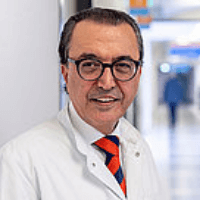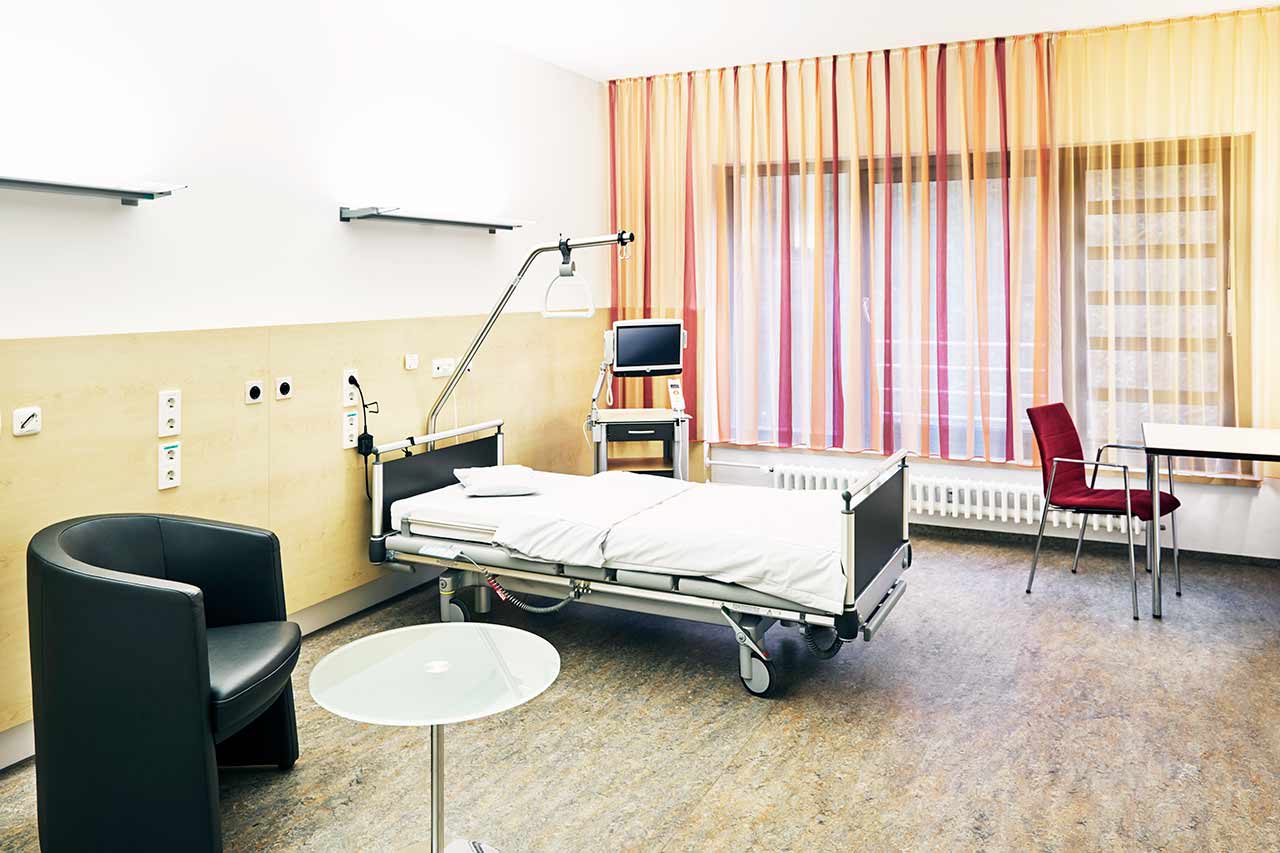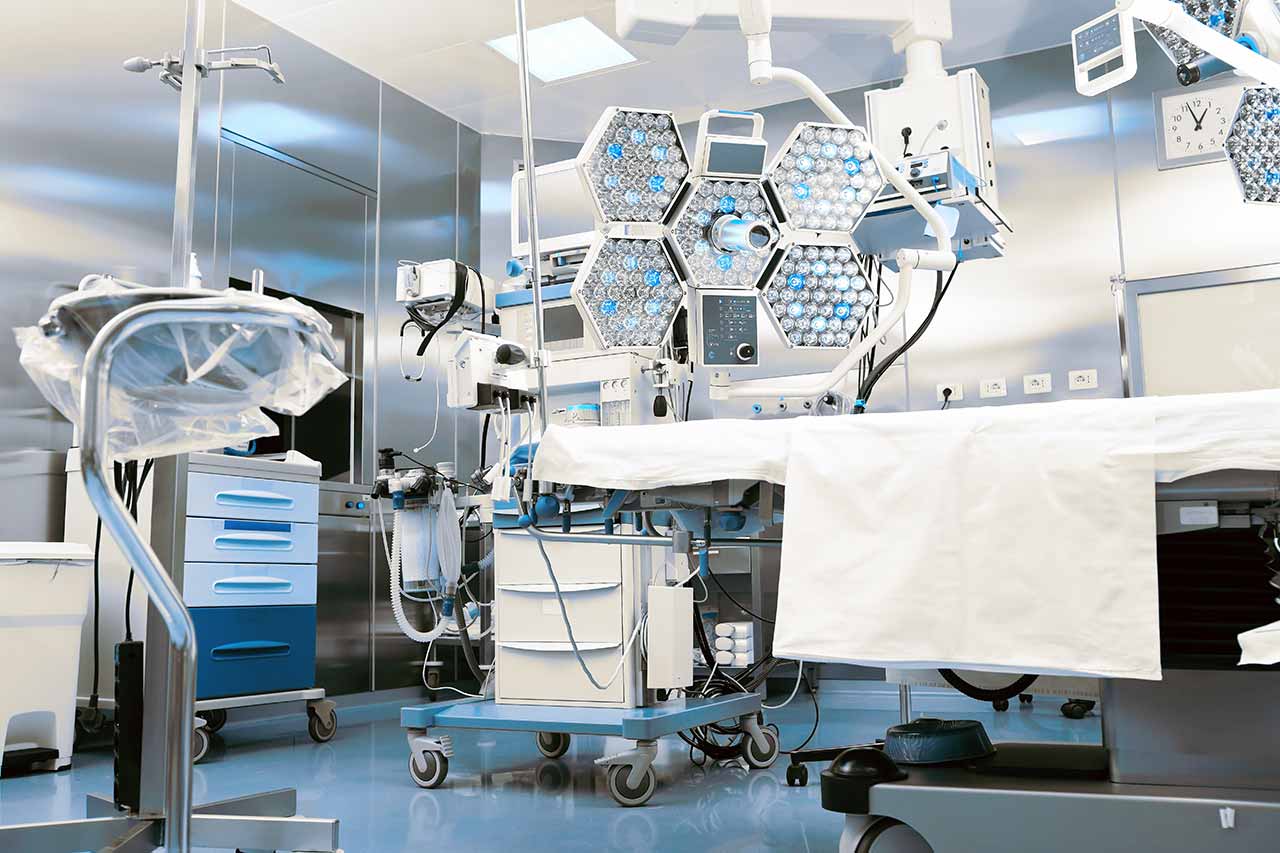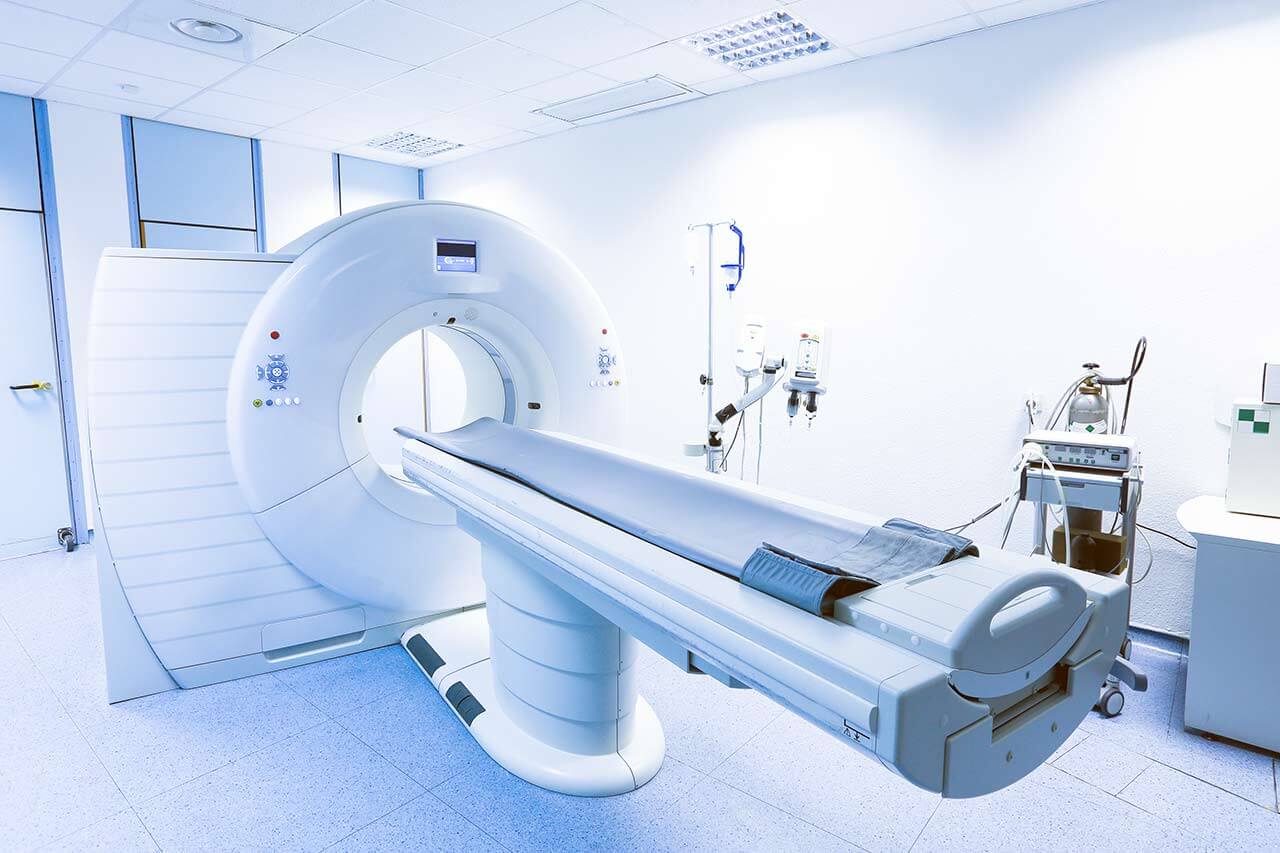
About the Department of Adult and Pediatric Cardiac Surgery at Hospital Kassel
The Department of Adult and Pediatric Cardiac Surgery at the Hospital Kassel offers the full range of open and minimally invasive heart and coronary artery surgical procedures. The department mostly performs coronary artery bypass grafting, heart valve repair and replacement, surgery to correct congenital heart defects in adults, interventions to implant left and right ventricular assist devices in the case of advanced types of heart failure, as well as combined interventions. In addition, the department successfully performs extracorporeal membrane oxygenation, which involves the use of an artificial heart and lung to temporarily maintain the patient's life and the functioning of his body when a person's own heart and/or lungs cannot function normally due to the pathological changes. The procedure is performed in both adults and children from 1 year old with severe respiratory failure. Both state-of-the-art medical equipment and long experience of the department's cardiac surgeons enable them to perform most heart operations using minimally invasive techniques, without a thoracotomy and a heart-lung machine. Such an approach guarantees the patient a minimum risk of complications during or after surgery, reduced hospitalization period and speedy recovery after surgery. The treatment success rates demonstrated by the department are registered by the Federal Office of Quality Assurance (BQS). With a low mortality rate and postoperative complications, the medical facility ranks third among Heart Surgery Clinics in Germany. The department is headed by PD Dr. med. Ali Asghar Peivandi.
One of the most demanded cardiac surgical procedures in the department is coronary artery bypass grafting, which requires the well-coordinated work of the surgical team and extensive clinical experience. This operation is indicated for patients with critical coronary artery occlusion, which provokes the development of coronary heart disease. The essence of the intervention is to bypass the blocked coronary arteries. The vessels from other anatomical regions of the body are used as material for this surgery. The aim of the operation is to restore normal blood flow between the coronary artery and the aorta. The procedure is performed under general anesthesia and lasts about 4-6 hours. Upon the completion of the operation, the patient is transferred to the Intensive Care Unit, where he is under constant medical monitoring. The probability of complications is extremely low, since modern monitoring systems for the patient's condition and the vast clinical experience of the department's doctors contribute to an instant response to changes in indicators and the state of the patient's body. In addition, the advanced technical equipment in the department's operating rooms allows the surgeons to perform off-pump coronary artery bypass grafting, minimally invasive direct coronary artery bypass grafting, as well as combined interventions, such as coronary artery bypass grafting with the surgical procedures to treat heart valve diseases, aortic aneurysm, etc. Minimally invasive direct coronary artery bypass grafting does not require a thoracotomy, while surgical access is provided by an incision between the ribs on the left side of the chest. When performing off-pump coronary artery bypass grafting, cardiac surgeons dissect the sternum, but the need for a heart-lung machine is excluded. The optimal surgical technique is selected individually for each patient, taking into account his particular clinical situation, clinical indicators, age, general health, etc.
Heart valve surgery is also among the department's priorities. The team of surgeons most often performs interventions to treat aortic valve stenosis, mitral valve stenosis, mitral valve prolapse and aortic insufficiency. The surgical options of the department in the treatment of heart valve diseases cover all modern techniques – from classic surgery to replace heart valve with a biological or mechanical prosthesis, minimally invasive aortic and mitral valve surgery without thoracotomy to reconstructive interventions on the heart valves with the preservation of the patient's own valve, as well as endoscopic mitral valve surgery. The main purpose of all interventions on the heart valves is to reduce the load on the heart, improve work capacity, patient's well-being and quality of life.
The department also successfully treats heart failure using ECMO, left ventricular assist device (LVAD) and right ventricular assist device (RVAD). The innovative ECMO (extracorporeal membrane oxygenation) technology is a life-sustaining technique in the cases of critical heart failure. The department's specialists also carry out the ECMO procedure in young patients from 1 year old suffering from severe types of respiratory failure. The main indication for this type of treatment is acute refractory heart failure. This technology is a modification of artificial blood circulation and is designed for long-term usage. The main purpose of ECMO is oxygenation of organs and tissues in the human body. This technique allows the doctors to gain time, reduce symptoms and improve health for further treatment. The left ventricular assist device (LVAD) and the right ventricular assist device (RVAD) are also effective methods for maintaining normal heart function. The devices are used as a pump for blood transfusion in the patients with heart failure before heart transplantation or in the cases where transplantation is not possible due to the patient's poor health. LVAD and RVAD systems can be implanted both inside the body and outside. The progressive devices allow the patients not only to wait for transplantation and to maintain the functioning of the heart ventricles, but also to restore the function of the heart muscle. The technology improves and the scope of its application expands every year.
The department's surgical service range includes:
- Coronary artery surgery
- Classical coronary artery bypass grafting with thoracotomy and the use of a heart-lung machine
- Total arterial myocardial revascularization, including in elderly patients
- Off-pump coronary artery bypass grafting
- Minimally invasive direct coronary artery bypass grafting
- Combined interventions, such as coronary artery bypass grafting with operations on the heart valves, aortic surgery, etc.
- Heart valve surgery
- Classical surgery to replace heart valve with a biological or mechanical prosthesis
- Minimally invasive interventions on the aortic and mitral valves without thoracotomy
- Classic and minimally invasive reconstructive interventions on the mitral, aortic and tricuspid valves with the preservation of the patient's own valve
- Endoscopic mitral valve surgery
- Minimally invasive surgery on multiple heart valves simultaneously
- Special sparing surgical interventions in patients after previous heart surgery with the use of modern ultrasound systems for surgery planning
- Minimally invasive sparing heart valve surgery and coronary artery bypass grafting in elderly patients
- Revision coronary artery bypass grafting
- Revision heart valve surgery
- Surgery to treat heart rhythm disorders (arrhythmias)
- Atrial fibrillation ablation in combination with heart valve surgery or coronary artery bypass grafting
- Minimally invasive atrial fibrillation ablation
- Implantation of biventricular pacemakers using a minimally invasive technique
- Implantation of single and dual chamber pacemakers
- Implantation of defibrillators
- Aortic surgery
- Modern interventions for aortic dissection
- Mini-Bentall procedure
- Classical and interventional procedures to treat aortic aneurysm
- Interdisciplinary treatment of severe aortic diseases (for example, hybrid aortic arch surgery)
- Treatment of advanced types of heart and lung failure
- Left ventricular assist device (LVAD) and right ventricular assist device (RVAD) placement
- Circulatory support system (ECMO, ECLS, Impella, IABP) placement
- Biventricular pacemaker placement
- Treatment of heart and respiratory failure with extracorporeal membrane oxygenation (ECMO) in adults and children from 1 year old
- Surgical treatment of pulmonary embolism
- Surgical treatment of congenital heart defects in adults
- Other cardiac interventions
Curriculum vitae
PD Dr. med. Ali Asghar Peivandi is an internationally recognized expert in cardiac surgery. Thanks to his long practical experience and high professionalism, he annually performs many cardiac surgical procedures of varying complexity. The special focus of the expert is on minimally invasive heart surgery in elderly patients who have previously undergone cardiac interventions. The doctor regularly speaks at various conferences and symposia dedicated to cardiac surgery both in Germany and abroad.
Since April 2011, Dr. med. Ali Asghar Peivandi has been heading the Department of Adult and Pediatric Cardiac Surgery at the Hospital Kassel. He previously held the position of Senior Physician and Deputy Head of the Department of Adult and Pediatric Cardiothoracic Surgery at the University Hospital Mainz. Dr. Ali Asghar Peivandi received his medical education at the Johannes Gutenberg University Mainz and at Yale University, USA. He received his doctoral degree in medicine in 1998, and in 2007 he had his habilitation in cardiac surgery.
Photo of the doctor: (c) Klinikum Kassel





